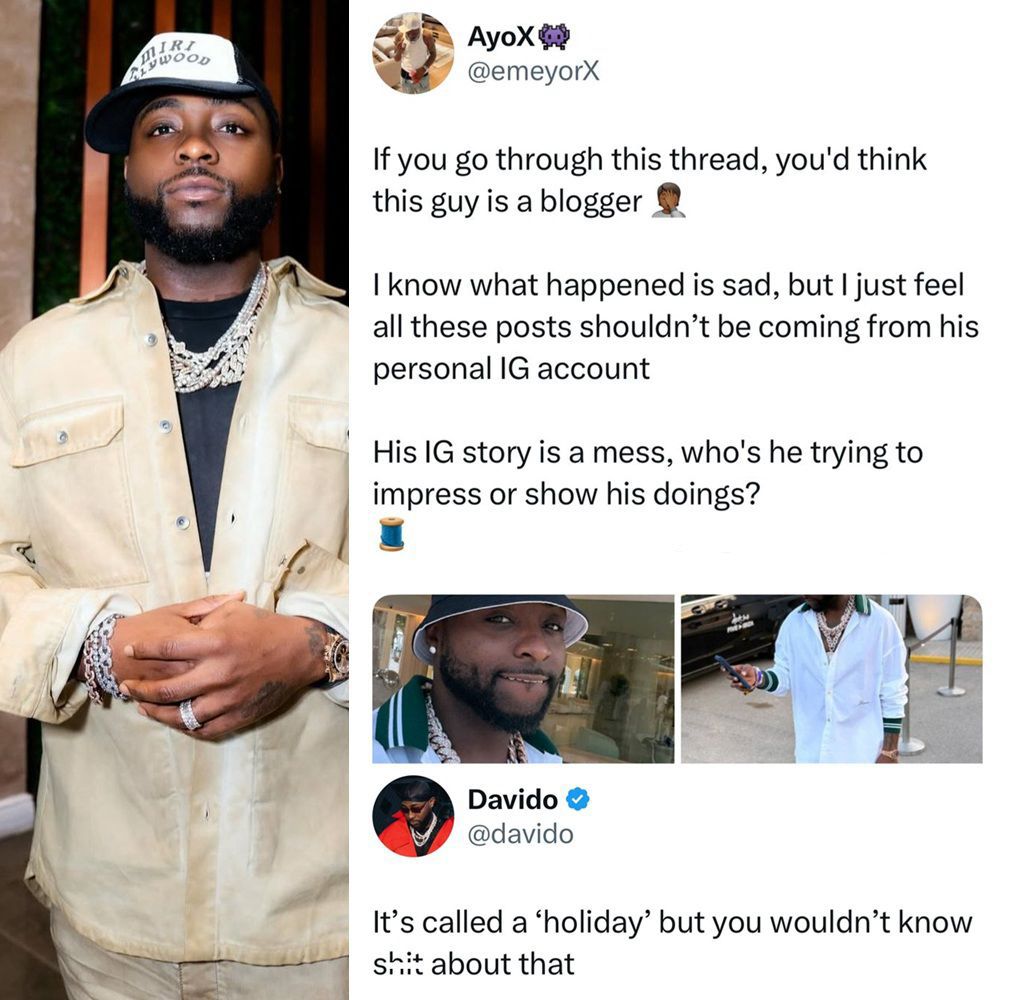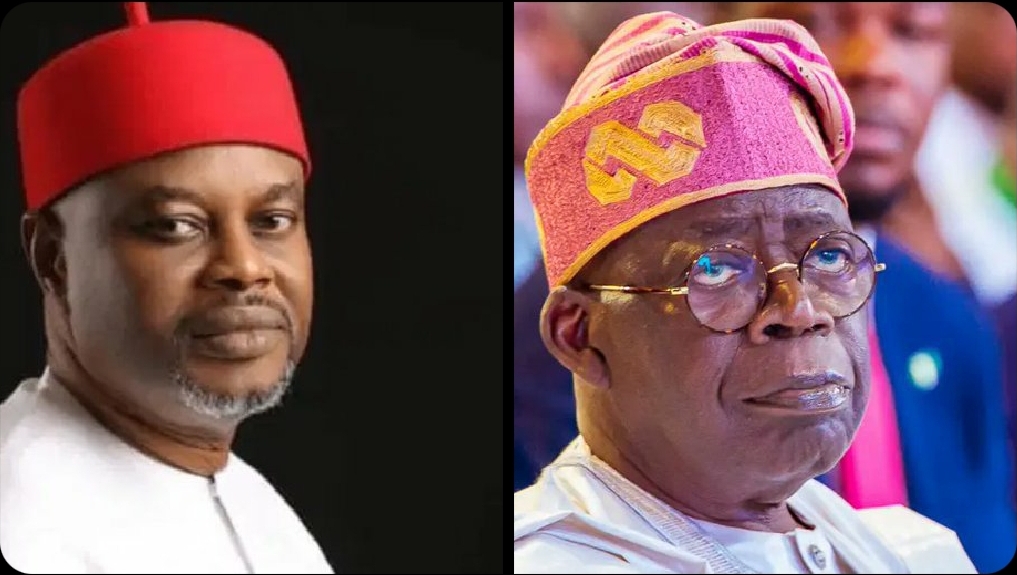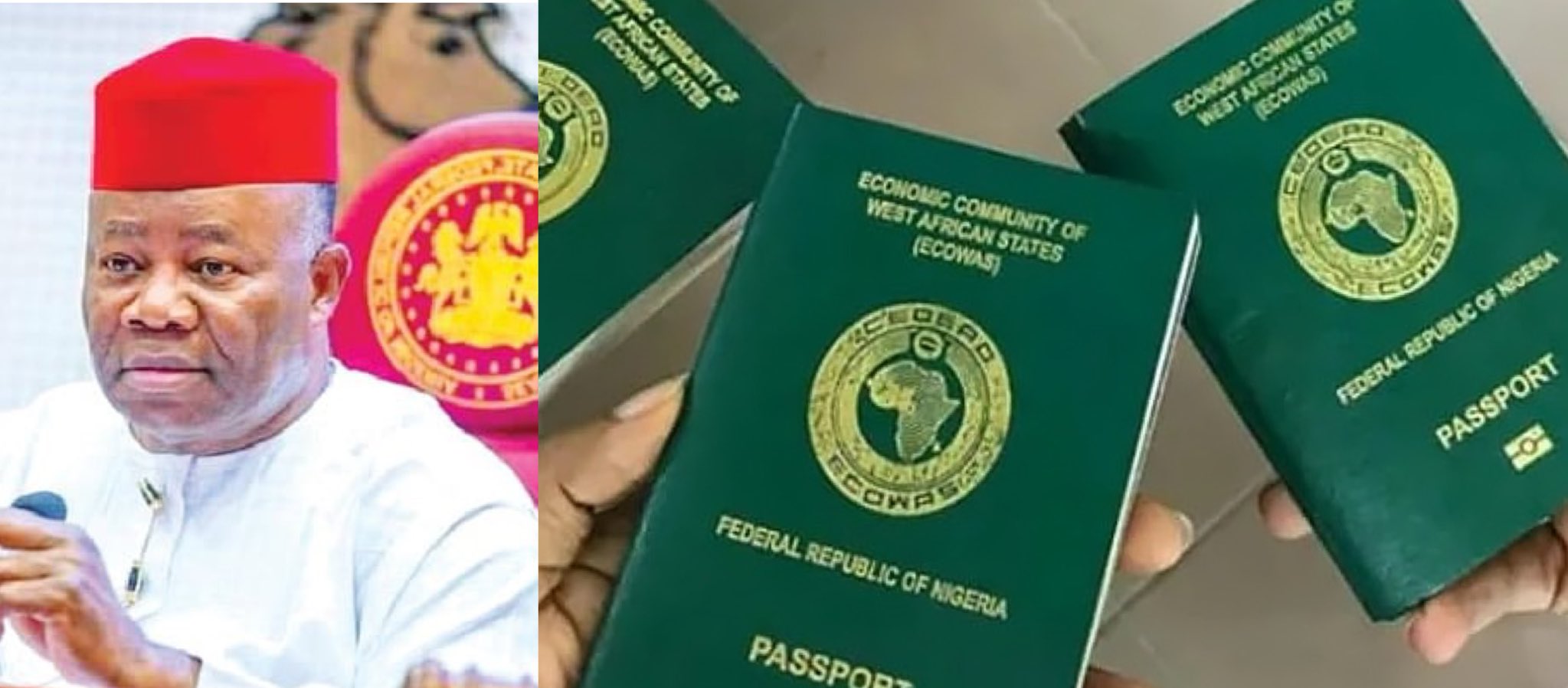
“It’s Called a Holiday”: Davido’s Fiery Clapback Silences Critic Who Slammed His Social Media Posts

Nigerian megastar David Adeleke, widely known as Davido, has once again proven that he’s never one to let shade slide, especially when it comes to unsolicited opinions about how he chooses to live his life. The multi-award-winning singer lit up social media after a user took to X (formerly Twitter) to question the tone and content of his recent Instagram posts during what appeared to be a luxurious vacation. What followed was a savage yet succinct response from Davido that has since gone viral—and left many talking about celebrity privacy, online criticism, and public grief.
The drama started when a user identified as @emeyorX posted a commentary thread criticizing Davido’s posts on Instagram, suggesting that his page had started to resemble that of a lifestyle blogger rather than an international music icon. The user’s tweet read: “If you go through this thread, you'd think this guy is a blogger. I know what happened is sad, but I just feel all these posts shouldn't be coming from his personal IG account. His IG story is a mess, who's he trying to impress or show his doings?”
While the original poster may have intended it as a critique, it struck a nerve with fans and observers alike. Many came to Davido’s defense instantly, pointing out that celebrities are humans too, and taking a vacation or choosing to share glimpses of it with fans should not warrant moral policing. But it was Davido’s own clapback that truly shut down the conversation. In just a few words, he replied: “It's called a 'holiday' but you wouldn't know shit about that.”
Short, brutal, and straight to the point.
Davido’s response has since been retweeted thousands of times, with fans praising his ability to swiftly dismantle the criticism with a dose of humor and confidence. The phrase “It’s called a holiday” has now become a trending slogan among his followers, who are using it to remind others that not everything shared online needs to conform to public expectations—especially not when it comes from someone who has experienced both overwhelming success and personal tragedy in the public eye.
Davido, who has faced immense personal loss over the past year, including the tragic passing of his son Ifeanyi, has slowly re-emerged into the public sphere, engaging with fans, releasing new music, and living life as fully as he can. His recent posts from exotic locations are filled with pictures of blue skies, designer fits, boat rides, private jets, and laughter—clear attempts at enjoying the lighter moments of life. But to some critics like @emeyorX, those posts appear to be excessive or performative. However, what they fail to consider is the complex reality of being a celebrity whose life is under constant public scrutiny.
Davido’s decision to fire back wasn’t just about defending his posts—it was a subtle assertion of his right to joy, to healing, and to rest. The critique’s undertone implied that Davido's mourning or public image should conform to a certain quietness or stoicism, but that simply isn’t who he is. Davido has never been one to shrink into silence, and his social media presence has always been vibrant, transparent, and at times chaotic—just like real life.
His fans, known for their unwavering loyalty, have continued to support him through highs and lows. From his charitable work to his energetic performances, Davido has earned his place not just as an entertainer, but as a cultural figure who reshapes the expectations of African stardom. He’s not just living a luxury lifestyle; he’s also been responsible for uplifting young talents, building homes for the less privileged, and being vocal about issues that matter to him.
In the fast-moving world of social media, however, there’s always someone ready to critique, especially when celebrities dare to show their humanness. The idea that Davido’s Instagram stories need to meet some emotional or moral standard exposes a larger issue about how public figures are boxed into narratives that often ignore their right to self-expression.
The backlash against the critic has been swift. Many users on X called out the hypocrisy of expecting celebrities to constantly curate their grief or downplay their happiness just to avoid offending sensibilities. “So the guy should not breathe or smile because he lost someone? Some of you are heartless under the guise of giving opinion,” one user tweeted in defense of Davido. Another said, “Let Davido heal the way he wants to. If private jets and tequila help him get through the day, so be it.”
The conversation has reignited the debate around parasocial relationships and the entitlement of audiences to dictate how their favorite public figures behave online. While fans may feel emotionally connected to celebrities, it’s important to remember that they are not therapists, nor do they owe anyone an explanation for how they choose to live their lives.
Davido’s choice of words might have been savage, but it was also incredibly human. It encapsulated the exhaustion that comes from constantly being watched, judged, and held to impossible standards. It was a reminder that holidays aren’t just for the physically tired—they’re for the emotionally exhausted too. And if a superstar wants to post pictures of champagne, sunsets, or silly moments with friends, they have every right to do so without having to justify it.
As the dust settles on this viral moment, it’s clear that Davido’s fan base remains as strong as ever. His authenticity, candor, and refusal to be boxed in make him one of the most relatable and real celebrities on the African continent. In a world where image is everything, Davido has once again proven that staying true to yourself is the ultimate power move.
So next time someone questions why a celebrity is smiling too much, traveling too far, or posting too often, just remember Davido’s words: “It’s called a holiday.” And maybe—just maybe—everyone deserves one.


